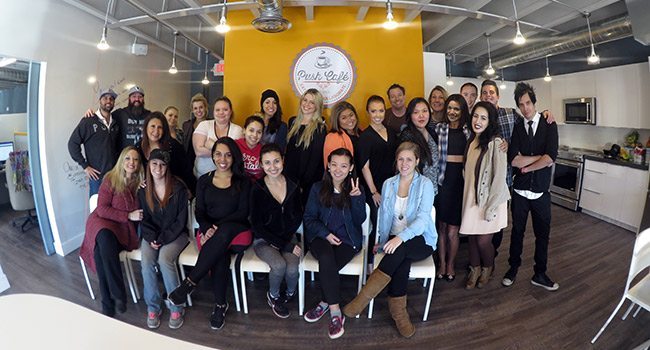Culture: it’s been around since the dawn of human existence and, whether consciously created or organically developed, it serves to uphold values, maintain goals and shape attitudes and interactions. Smart employers recognize that this element of human nature is pivotal in cultivating a work environment that supports both staff fulfillment and company success.
According to research, a culture in which employees are happy, adaptable, and share the organization’s vision, sets the tone for a company that will outpace its competitors and provide a better experience for its customers. It’s one thing to offer a fun place to work, but those who deliberately create a purposefully driven culture that is built upon core values and long-term vision will have a more motivated, inspired and passionate team, which ultimately helps boost bottom line performance.
Establishing a strong, effective culture with an in-office staff who spends 40-plus hours a week together is challenging enough. But how can this same principle be applied when the business model includes remote, per-diem or seasonal employees who aren’t immersed in the culture on a daily basis? Here are three effective ways to build and promote your company culture across the board, no matter how far removed your employees are:
- Extend your core values to fit your various teams –– Core values are the foundation of a strong culture – they give your employees direction, help them maintain focus, and serve to remind your staff of the purpose behind doing they what they do each day. While your overarching theme will always be present, you may need to develop slightly different core values for various types of teams. At the PUSH Agency, our corporate team operates under seven guiding principles ranging from “Be Innovative” to “Be Zen.” However, since our business is reliant on remote teams who not only represent our company but also other brands, we pare down and customize the core values we instill in those individuals. What is pivotal to the success of our remote teams, or brand ambassadors, is to be early, be committed, and be happy. Our internal teams are responsible for gathering and managing the external teams, so when they’re living and breathing their core values, it trickles down. They’re able to quickly translate that into motivating our brand ambassadors to do their best and keep their sense of duty.
- Seek the fit before you commit– Because of the unique nature of working with part-time and on-demand workers, the development of culture in our environment begins with a screening process. We seek a certain type of person for the roles our clients are looking to fill, so we need to a get a sense for their ability to be professional, engaging and adaptable. Core values and company mantras can only be effective when your workers are open to them. We’ve found that evaluating a person’s inherent qualities before hiring them is the best way to ensure our values are embraced and our culture remains intact.
- Give and get feedback – Our industry is event marketing, so success depends on offering up our best talent and keeping things running smoothly when it matters. Like many businesses, there are no second chances in our world. While we’re all human and unexpected issues are always a possibility (perhaps even a given), the ability to recover from and correct them is paramount to whether or not a client remains happy. We check in on our teams while they’re on site and encourage our customers to give us honest feedback on how our staff is performing. If someone is in need of a pick-me-up or requires clarification of the expectations, we offer real-time support and allow our team members an opportunity to turn things around with a gentle reminder of the values they agreed to uphold.
Whether you’ve already cultivated a winning culture or if you’re hoping to transform a struggling one, consistency and continual reinforcement of the expectations and values are paramount to success. Change won’t happen overnight, and the seeds need ongoing care and attention to grow. Focus on the long-term vision, connect with your employees (internal and external) and give them a sense of ownership in the outcome – even if they’re not within your office walls on a daily basis. Your company has a culture even if it hasn’t been consciously created; put the above into practice and you’ll ensure it’s a positive one.



